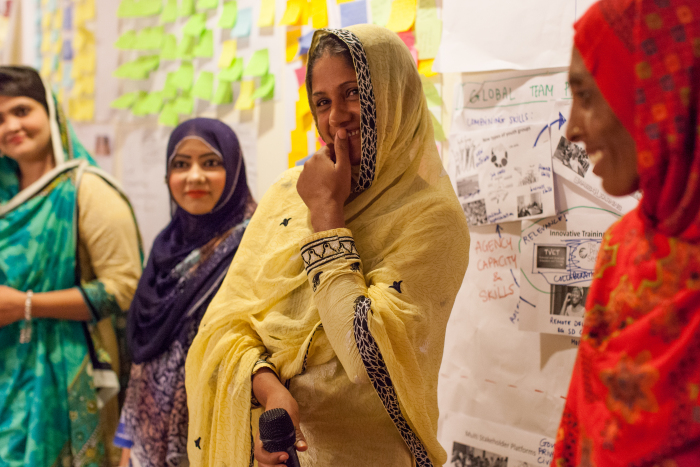Schooling the world: Weapon for change or the white man’s last burden?
The two faces of education
“Generations from now, we’ll look back and say, ‘How could we have done this kind of thing to people?”. This quote from the documentary “Schooling the world – the white man’s last burden” is not talking about war, poverty or inequality. It is talking about school. This might sound surprising, as we tend to think about education and its effects on international development in positive terms.
As Nelson Mandela famously said, “Education is the most powerful weapon which you can use to change the world”.People like Malala Yousafzai admirably dedicate their lives to ensuring every child gets the chance to go to school. Without a doubt, education is a crucial tool in the fight against poverty and inequality. And yet, the following clip by Schooling the World shows that the issue is more complex than we think:
If schooling has the power both to empower and to destroy, getting every child into school can never be enough. Instead of seeing education as a “one-size-fits-all” solution, organizations like Oxfam have to ask themselves what kind of education they want to support. Whose interests are represented? Are our educational interventions transforming unequal power structures, or reproducing them?
Oxfam and Transformative Education
Within the Oxfam confederation, these kind of questions were discussed during an international workshop on education and inequality in 2016. During this meeting, Oxfam’s overarching goal on education was defined as follows: “to strengthen transformative public education for all to fight inequality” (Oxfam Ibis, 2017). Thereby, Oxfam defined education quality by its transformative intentions and outcomes.
In the traditional ‘banking approach’ to education, students are seen as empty vases to be filled with knowledge. Transformative education, on the other hand, is based on learning through experience and critical reflection. It aims to “empower learners, enable them to constructively consider multiple viewpoints in dialogue with others and give them the skills to engage in social actions” (Oxfam Ibis, 2017)
As a result of the 2016 meeting, the Education Community of Practice and Influencing (ECPI) was created to allow Oxfam member organizations to continue discussing and coordinating Oxfam’s work on education. Around the same time, the Cross-Affiliate Transformative Education Group (CATEG) was established to specifically discuss the work the member organizations are doing regarding education in their own societies.
During my time as an intern at the Oxfam Novib Youth team, I am developing a reflection tool for designing, monitoring and evaluating transformative education programs. I hope that through this tool, which is based on the theoretical framework I developed in my thesis research on transformative citizenship education in Colombia, I can make a small contribution to the growing transformative education movement in Oxfam.

Photo Credit: Khaula Jamil/ Oxfam Novib
Bringing the politics back into education
The shift from Millennium Development Goals (MDGs) to Sustainable Development Goals (SDGs) dramatically changed the discussion on education in international development. Whereas the MDGs aimed to guarantee universal access to primary school by 2015, the SDGs explicitly take the quality and inclusiveness of education into the equation – in all countries and for all levels of education.
This is a unique opportunity for organizations like Oxfam to put transformative education on the global agenda by advocating for a kind of education that:
- prepares learners to be active citizens who are able to question existing social structures and to take part in changing them, rather than requiring students to adapt to a fixed status quo.
- is a public good provided by the government, rather than privatized and dominated by a market-centric imperative.
- is responsive to the specific cultural, socio-political and historical context, rather than being presented as a technical, politically neutral solution.
Maybe, then, generations from now, we will be able to look back and say “we’ve done the best we could”.
References and more information:
- schoolingtheworld.org/
- http://oxfamibis.dk/sites/default/files/media/pdf_global/ny_transformative_education_oxfam_ibis_concept_paper_eng.pdf
This blog was written by Jana De Poorter, who is interning at Oxfam Novib in the Youth Team and developing a reflection tool for work on transformative education. Contact Jana on LinkedIn.




